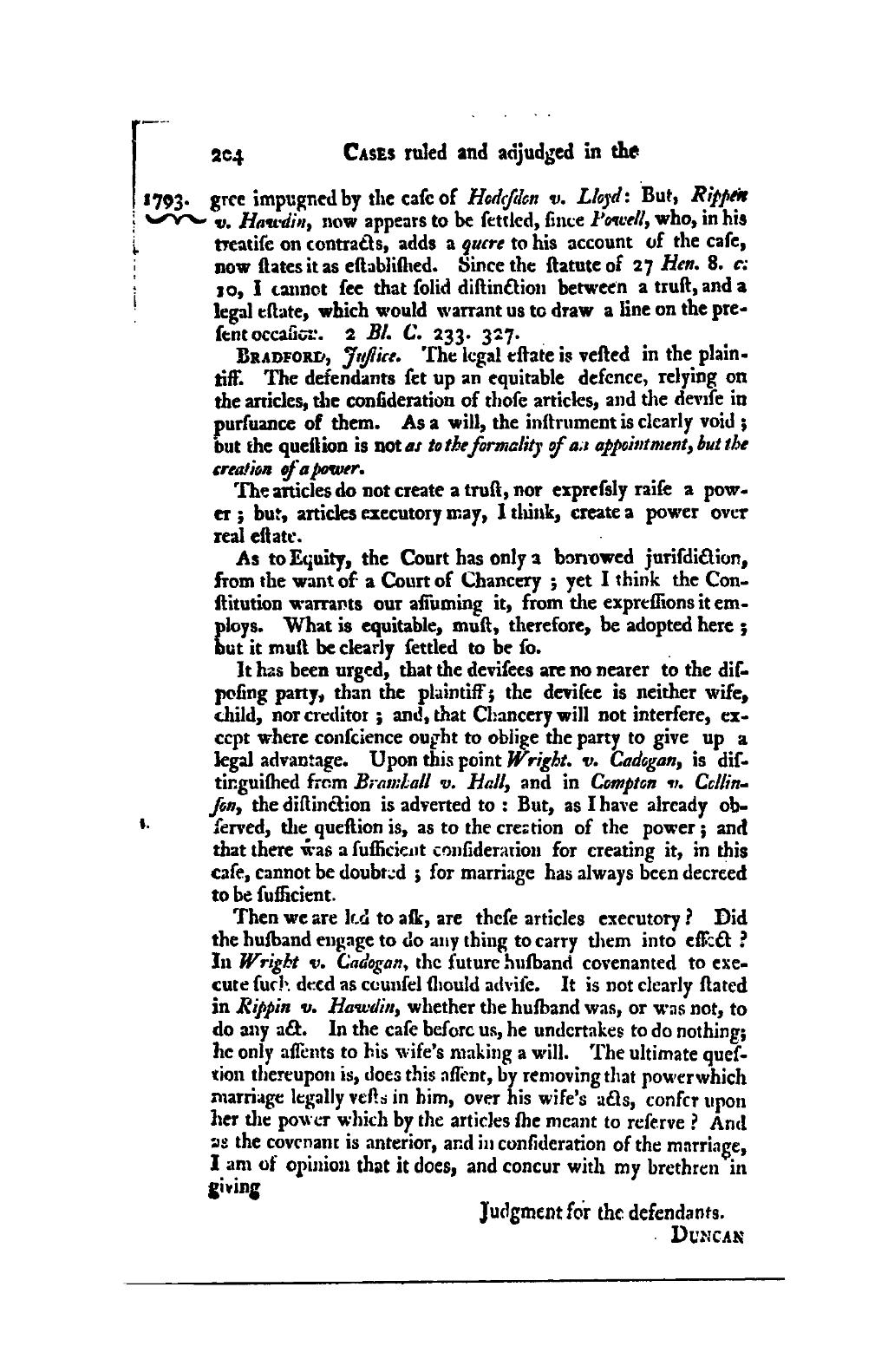[ 2c4 Cases ruled and adjudged in the |793. gree impugned by the cafe of Hodjlm v. Lloyd: But,
*’Y- ·u. Huu-din, now appears to be fettled, {inee I'a·w¢·II, who, tn his
i, treatife on eontratls, adds a qurre to his account uf the cafe, i now flates it as eflablifhed. Since the {latutc of 27 Hen. 8. ¢·; € ro, I cannot fee that folid dillinétion between a trull,anda i legal ellate, which would warrant us to draw a line on the pre- fentoccalice. 2 BI. C. 233. 327. _ Bnanronn, _‘}'ryiiu·. The legal ellate is vefled in the plain- tilli The defendants fet up an equitable defence, relying on the articles, the coniideration of thofe articles, and the devrfe in purfuance of them. As a will, the inftrument is clearly void ; but the queilion is not or to llvjbrmality gf an appointment, but the creation Q/`apowzr. The articles do not create a troll, nor exprefsly raife a pow- er; but, articles executory may, Ithink, createa power over real eilate. - As to Equity, the Court has onlya borrowed jurifdiélion, from the want of a Court of Chancery ; yet I think the Con- {titution warrants our affuming it, from the expreilions it em- ploys. What is equitable, mult, therefore, be adopted here ; ut it mul} be clearly fettled to be fo. 4 It has been urged, that the devifees are no nearer to the dif- poling party, than the plaintiil`; the devifee is neither wife, child, nor creditor ; and, that Chancery will not interfere, ex- cept where confeience ought to oblige the party to give up a legal advantage. Upon this point Wright. v. Cadogan, is dif- tinguifhed from Bmmball ·v. Hall, and in Campion 1:. Callin- jn, the diflinétion is adrerted to : But, as Ihave already ob- •- {erred, the queflion is, as to the creation of the power; and that there was afuflicient confiderarion for creating it, in this cafe, cannot be doubted ; for marriage has always been decreed to be fuiiicient. Then we are led to allr, are thefe articles execurory? Did the hulband engage to do any thing to carry them into effcfi ? In Wrgbt v. Cndogan, the future hnfband covenanted to exe- cute fut!2 deed as counfel {hould advife. It is not clearly {lated in Rypin ·u. Hawdin, whether the hufband was, or was not, to do any a&. In the cafe before us, he undertakes to do nothing; he only affents to his wife’s making a will. The ultimate quef· tion thereupon is, does this aflent, by removing that powerwhich marriage legally veils in him, over his wife‘s aéls, confer upon her the power which by the articles {he meant to referve ? And as the covenant is anterior, and in conlideration of the marriage, Ilarn of opinion that it does, and concur with my brethren in giving judgment for the defendants. - Duncan
�
